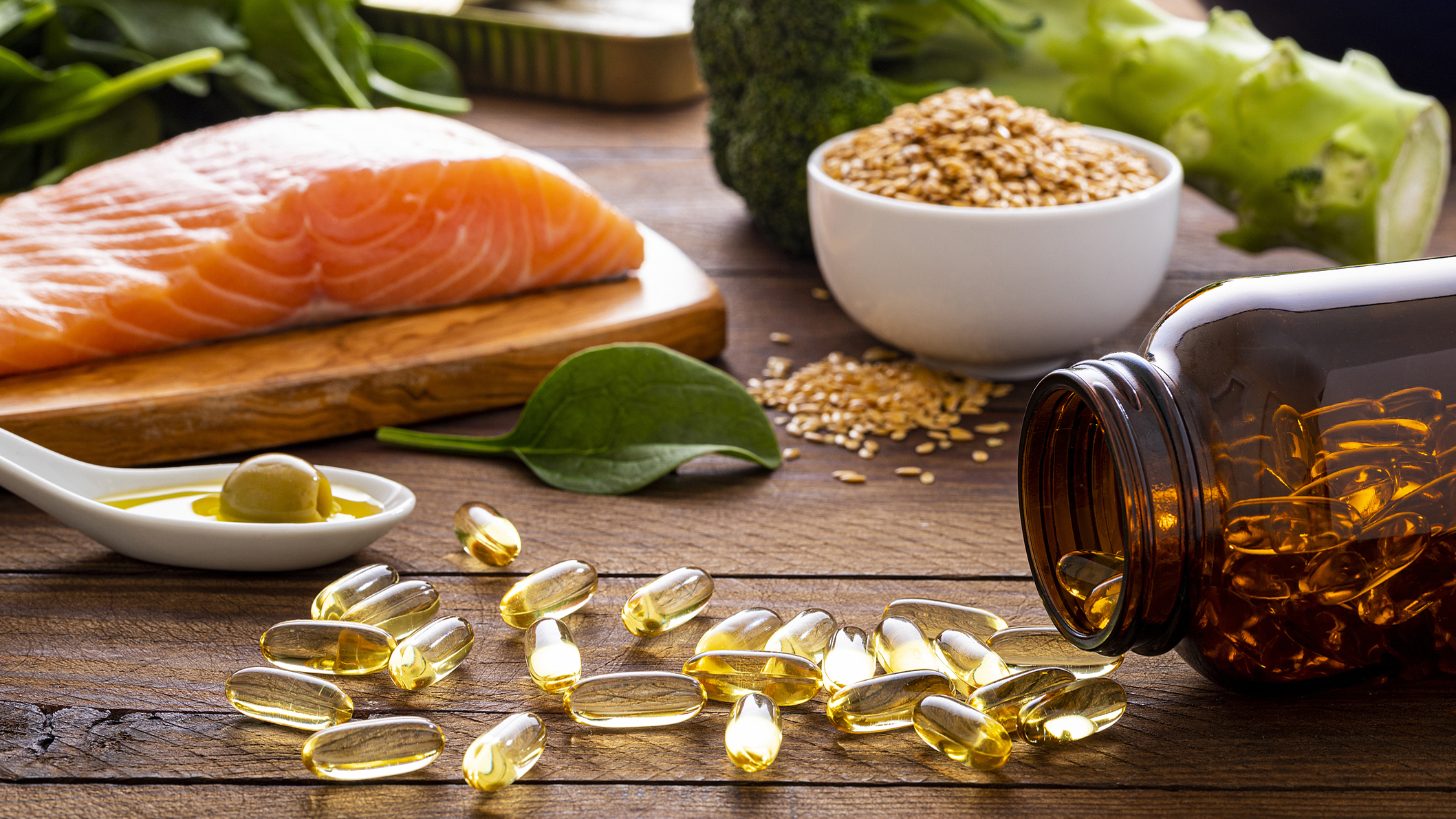
Sugar and fat both play a big role in western diets, featuring heavily in popular food and drink. They’re also often blamed for a whole host of health problems, so we decided to ask some dietitians if they deserve their bad press.
All the experts we spoke to agree on one thing: both sugar and fat can play an important, positive role in bodily functions. Problems only arise when we eat an excessive amount of them.
However, while there are some essential fatty acids that you definitely need to consume, there aren’t any essential sugars that your body actually needs to function. Here's what you need to know.
Sugar vs fat: what’s the difference?
You might be picturing things like cheesecake and fries when you think of sugar and fat – but technically, sugar and fat are just macronutrients. Joel Totoro, a registered dietician, explains that all food is built from a mix of three basic macronutrients: fats, protein and carbohydrates. Sugar is a form of carbohydrate, so it falls into this latter category.

Joel Totoro is a registered dietician and the director of sports science at Thorne HealthTech. He graduated from the University of Connecticut with a Bachelor of Science in Allied Health and Dietetics and has worked in nutrition for twenty years.
Each of these macronutrients has a different role to play in your body. Protein is vital for building and maintaining muscle. Carbohydrates (like sugar) provide energy. Fats serve as an energy reserve and provide vital protection for organs.

While there are no essential sugars that the body needs to function, there are some vital fats: Omega-3s. Found in things like fish oil, nuts and seeds, they make the hormones that regulate the central nervous system and immune system. Your body also needs fat to absorb the vitamins A, D, E, K.
Sugar vs fat: which is worse for weight gain?
As Totoro explains, weight loss (and gain) is down to a simple calculation of calories in versus calories out – it doesn't matter where these calories come from: “When protein, fiber, and total calories are controlled, there is little difference in weight loss [patterns] between low-fat versus low-sugar.”
Start your week with achievable workout ideas, health tips and wellbeing advice in your inbox.
Fat is slightly worse than sugar when it comes to calorie content. Sugar contains four calories per gram, whereas fats provide nine calories per gram. However, fats are better for promoting satiety (feeling full) so you might be less likely to return to the snack cupboard after eating them.

As Totoro says, it doesn’t matter what the macronutrient content of your food is: the key to weight loss is being in a calorie deficit. If you're looking for more weight loss tips, read through our round-up of the best exercise machines to lose weight.
Sugar vs fat: bad fats and good fats
According to Roxana Ehsani, a registered dietitian, certain fats are better for us than others. Trans fats, which are found in fried foods and baked goods, can increase cholesterol, so they’re best avoided. Eating an excessive amount of saturated fats (found in things like full-fat dairy and palm oil) can also raise cholesterol levels – so it’s best to limit these, too.

Roxana Ehsani, MS, RD, CSSD, LDN is a board-certified specialist in sports dietetics and a National Media Spokesperson for the Academy of Nutrition and Dietetics. She holds a Bachelor of Science in Human Nutrition, Foods and Exercise from Virginia Tech and a Master of Science in Clinical Nutrition and Dietetics from the University of Pittsburgh and completed her dietetic internship at the University of Pittsburgh Medical Center.
But some fats can have a beneficial effect. A 2021 study in Nutrients journal concluded that the consumption of monounsaturated fatty acids (omega-3 and omega-6) lead to a risk reduction for heart disease. These fats are found in things like nuts, seeds, vegetable oils, oily fish and eggs. And as outlined above, you need a certain amount of fat in your diet for normal bodily functions.
Sugar vs fat: bad sugars and good sugars
The main problem with sugar is that it’s added to a lot of products – when it’s a naturally occurring substance in a food, it tends to come with a side serving of nutrients. For example, you can find sugar in plenty of fruit and vegetables, but you’ll also get a dose of fiber, vitamins and minerals when you eat these.
Problems arise when you start consuming an excessive amount of sugar, as a high sugar diet can lead to increased blood pressure, diabetes and dental issues. Processed sweet goods and sodas tend to contain much more sugar than fruit or vegetables. For this reason, you should steer clear of unnaturally sweetened products, but you don’t really need to worry about working your way through a big bowl of vegetables or fruits.
Sugar vs fat: energy levels
Fat and sugar affect your energy levels very differently. “Sugar is easily absorbed into the bloodstream and readily available for energy use; this is great when energy demands are high, such as in exercise,” Totoro explains.

However, some individuals will find that their body ‘over-corrects’ when they have too much sugar pumping through them. This means that the body will remove too much sugar from the blood, leading to a short-term crash until blood sugar normalizes. This can make you feel suddenly fatigued.
Fat, on the other hand, is much slower to digest. According to Totoro, this can help keep you feeling full for a longer period of time. In general though, fats aren’t used for energy consumption – carbohydrates are relied on instead.
Sugar vs fat: verdict
There are certain types of fats and sugars you want to avoid. Excessive consumption of trans- and saturated-fats can lead to higher cholesterol, while eating too many processed, sugary foods can cause high blood pressure and diabetes.
However, you need to have a certain amount of fat in your diet to maintain normal bodily functions, as this macronutrient is responsible for things like hormonal balance and vitamin absorption.
And while there are no sugars that are essential to a diet, eating a small amount of naturally occurring sugar (found in things like fruit and vegetables) is no bad thing, thanks to the side serving of vitamins and minerals found in these foods.

Lou Mudge is a Health Writer at Future Plc, working across Fit&Well and Coach. She previously worked for Live Science, and regularly writes for Space.com and Pet's Radar. Based in Bath, UK, she has a passion for food, nutrition and health and is eager to demystify diet culture in order to make health and fitness accessible to everybody.
Multiple diagnoses in her early twenties sparked an interest in the gut-brain axis and the impact that diet and exercise can have on both physical and mental health. She was put on the FODMAP elimination diet during this time and learned to adapt recipes to fit these parameters, while retaining core flavors and textures, and now enjoys cooking for gut health.
